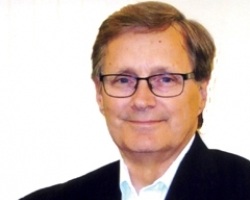Today’s technology makes it extremely difficult to detach ourselves from our own lives, especially long enough to remember the men and women whose dreams and aspirations were left forever on a battlefield.
The Americans lost around the world were every bit as vibrant and hopeful as people are today.
Most of them were young Americans and they too, were excited about their futures.
At the outset of World War II, American democracy was literally one military campaign away from being lost.
Many young citizens suddenly found themselves carrying rifles on a battlefield rather than baseball bats in the infield.
The men went off to all corners of the world to be shot at and shoot back. Women went to work in the war effort, literally riveting and welding planes together to beat back the threat. They substituted labor for luxury to defend the public interest of our nation.
More than 418,000 lives were lost in World War II, 33,652 in the Korean War, 58,200 in Vietnam, 4,472 in Iraq and 2,371 in Afghanistan.
Attached to each statistic was a name. Behind each name was a dream; a hopeful American who did not choose to die but loved their country enough to invest the balance of their lives in its future.
Most assuredly, they eventually wanted jobs, dreamed of careers and hoped to become husbands and wives to enjoy children and grandchildren one day.
The American system of governance for which they fought, and died, once represented an open society, reasonably balanced which served the overall needs of a growing nation.
Our politics have since devolved into a twisted mess that sadly seems to mostly serve those with the greatest proximity to power. Our fallen deserve better.
As frenetic as things are now, this slow, silent deviation from the public interest corresponds with the rise of technology able to manufacture truth to serve these special interests.
To be clear, however, this dangerous shift began decades ago and is unconnected to any single politician, administration or policy and results from a complex set of circumstances.
Tragically, as a result, both major parties have lost either sight of, and/or the ability to shape the common good.
Is this fair to those who lay down their lives with their bravery on a field of honor? These men and women likely gave their lives hoping future generations would not give up on our collective spirit. Their common bond is bathed in the blood of patriots with the courage to rally around the common needs of our nation. What binds us is still greater than what separates us.
Perhaps then there is no better way to honor the fallen than to pick up a notebook and get involved in our communities. Why can’t we summon the same kind of courage to change?
Even if our social media feeds are more interesting, America urgently needs more civic engagement from its citizens. Only by our collective absence have others been able to change the trajectory of our system, almost to the point of being unrecognizable to those who died to preserve it.
America has proven over and over again the power of unity, yet we must now contend with a lifestyle where smartphones make everyone a star and a tribal culture where empowerment leaves little time for tolerance and zero appetite for compromise.
Most of this, not all, happens because we, as citizens, choose to stay on the sidelines rather than jump into action. Had those that we honor on Memorial Day done the same thing, imagine what our world might be like today? America will overcome, no doubt, but will be shaped by those who now demonstrate bravery in the battle to shape our collective future.
These proud veterans laid down their lives to protect the public interest of the American system. Do we not owe it to them to pause long enough to think deeply about how we honor them on Memorial Day? When do we again commit to reboot and listen to each other to seek common ground? Their civic duty is now eternal. Ours, much easier.
Therefore we honor with dignity and respect those who made the ultimate investment of giving the balance of their lives to our nation. We salute their Gold Star families as well.
What we decide to do in the future is up to us. What they did gives us the freedom to choose.
David N. Young is editor of the Sun News.





